A permission letter is a document that allows individuals or organizations to formally request authorization for a specific action or use from an authority. It serves as a written record of the request and provides proof that permission was sought and granted if necessary.
The letter should clearly state the purpose of the request, provide relevant details, and express gratitude for considering the request.
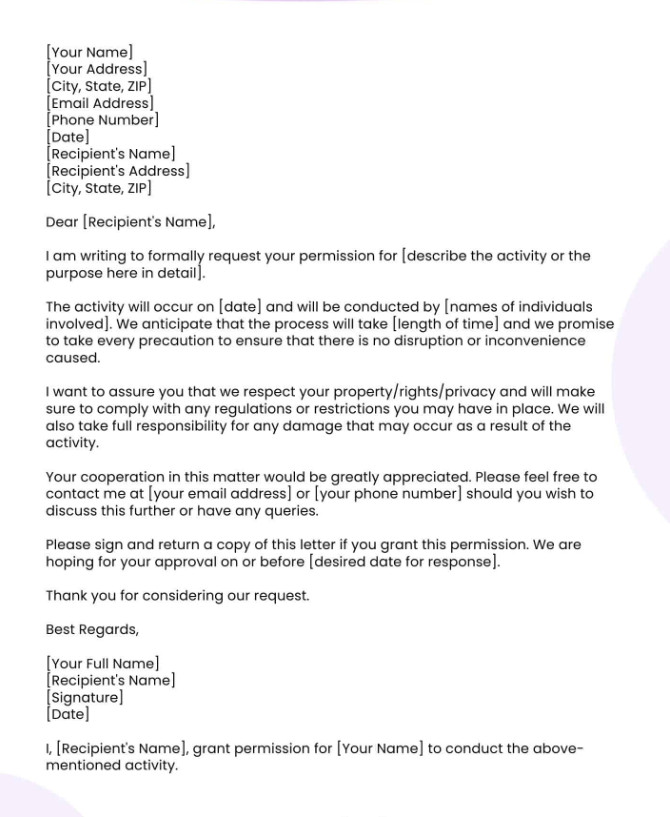
Why Do You Need a Permission Letter?
There are various reasons why you may need to write a permission letter. It could be for seeking permission to organize an event, use copyrighted material, access restricted areas, conduct research, or any other activity that requires authorization.
Having a written permission letter helps ensure that you have proper documentation and can demonstrate that you obtained permission if any questions or issues arise in the future.
How to Write a Permission Letter
Writing a permission letter is a straightforward process. Here are the steps to follow:
1. Start with a Polite Salutation
Begin the letter with a polite salutation, addressing the recipient respectfully. If you know the person’s name, use it. For instance, “Dear [Authority’s Name],” or “To Whom It May Concern,” if you are unsure about the recipient.
2. Introduce Yourself and State the Purpose
Introduce yourself and provide a brief background about who you are and why you are writing the letter. Clearly state the purpose of your request, including the specific action or use you are seeking permission for.
3. Provide Detailed Information
Include all relevant details related to your request, such as dates, times, locations, and any specific requirements. Be specific and provide as much information as possible to help the recipient understand the nature of your request.
4. Justify Your Request
Explain why the requested action or use is important and how it will benefit you, the organization, or the community. Provide a compelling argument to persuade the recipient to grant permission.
5. Express Gratitude
Show appreciation for the recipient’s time and consideration. Thank them for taking the time to review your request and for any assistance they may provide. It is important to maintain a polite and respectful tone throughout the letter.
6. Provide Contact Information
Include your contact information, such as your name, address, phone number, and email address. This allows the recipient to reach out to you if they have any questions or need further information.
7. Close the Letter Professionally
End the letter with a professional closing, such as “Sincerely,” or “Best Regards,” followed by your full name and any relevant titles or affiliations.
Examples of Permission Letters
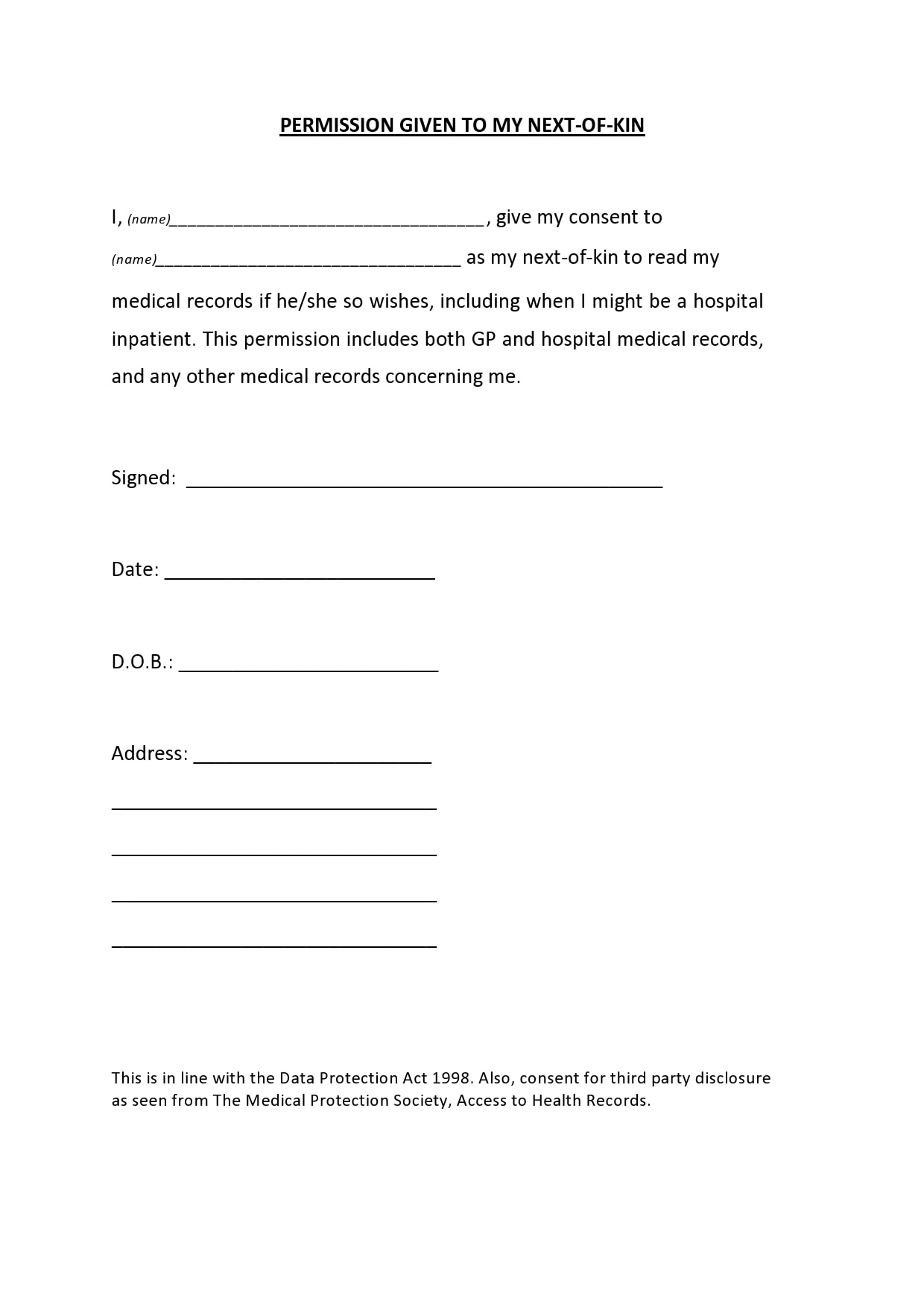
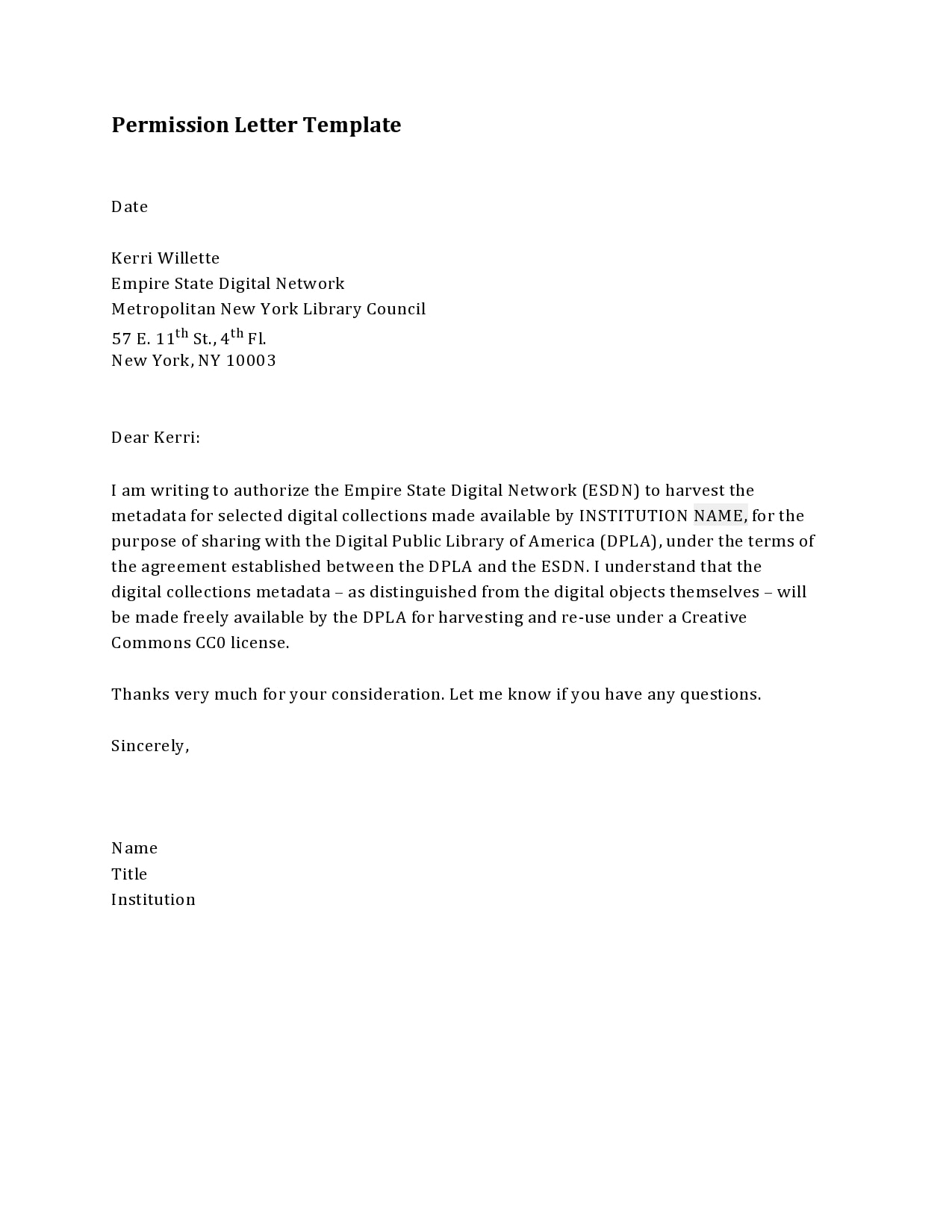
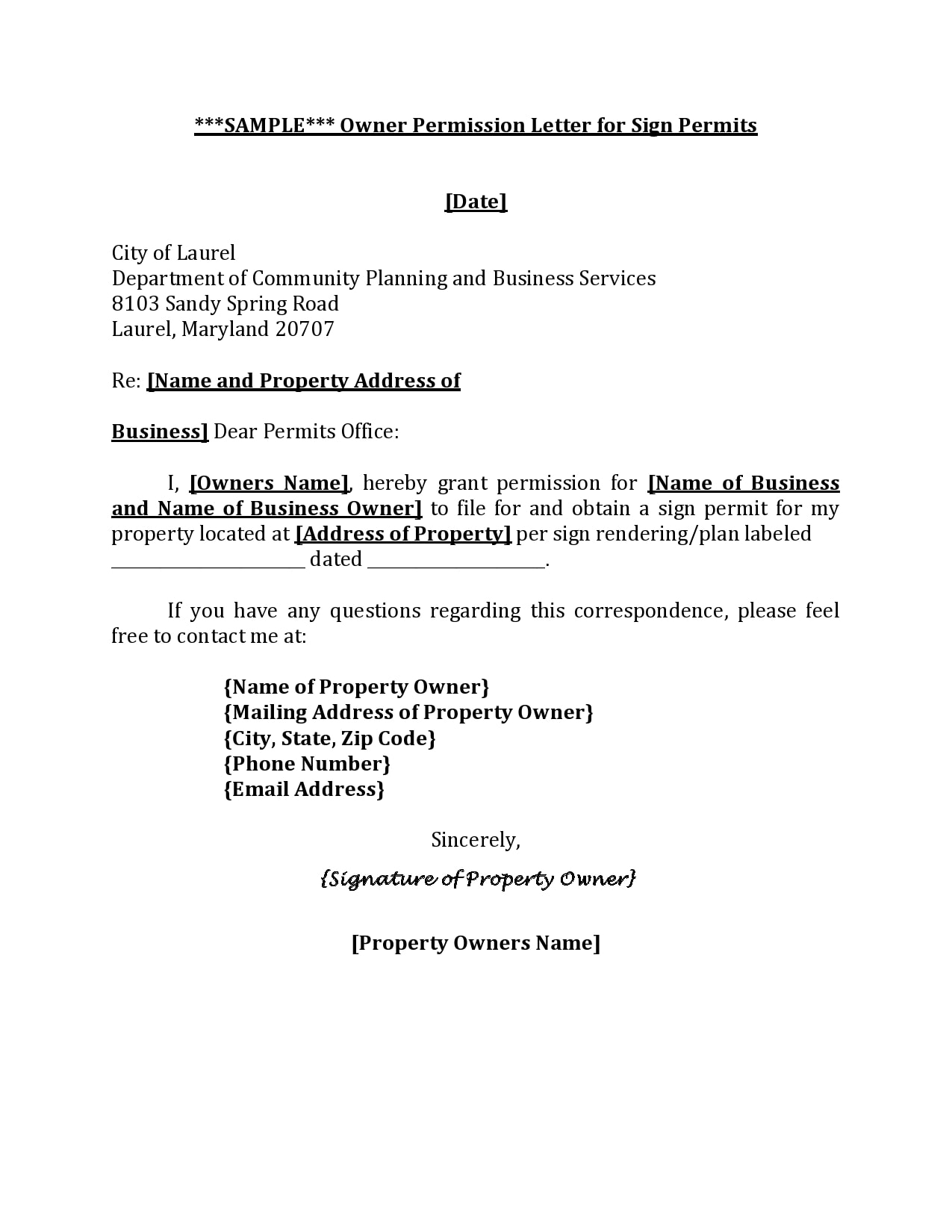
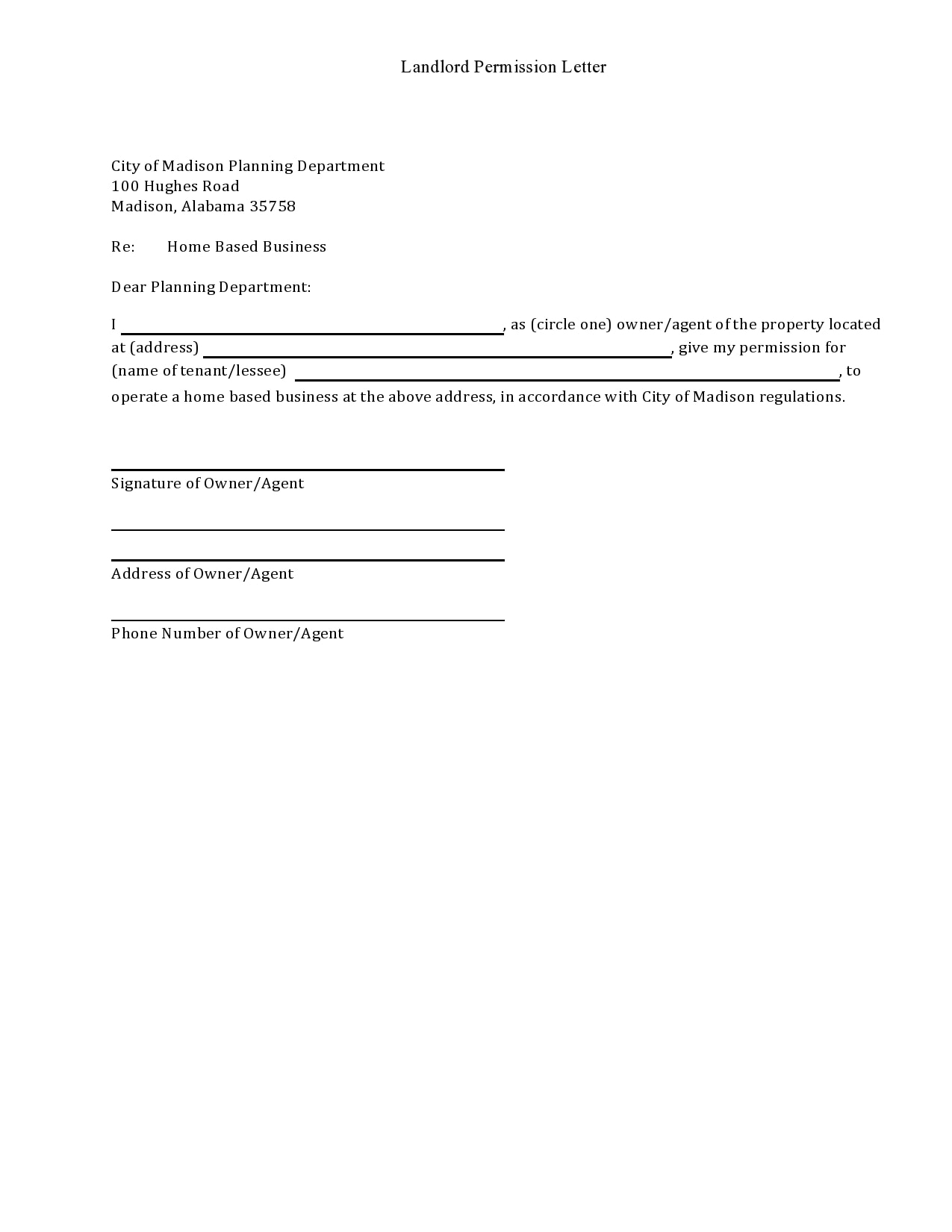
Tips for Successful Permission Letters
- Be Clear and Concise: Clearly state your request and concisely provide all necessary details.
- Use Professional Language: Maintain a professional and respectful tone throughout the letter.
- Provide Relevant Information: Include all relevant information related to your request, such as dates, times, locations, and any specific requirements.
- Justify Your Request: Explain why the requested action or use is important and how it will benefit you, the organization, or the community.
- Express Gratitude: Show appreciation for the recipient’s time and consideration by thanking them for reviewing your request.
- Follow Up: If you don’t receive a response within a reasonable time frame, consider following up with a polite inquiry.
Conclusion
A permission letter is a valuable tool when seeking authorization for a specific action or use from an authority. By following the steps outlined in this article and considering the provided examples and tips, you can effectively write a permission letter that presents your request in a clear, concise, and persuasive manner.
Remember to maintain a professional and respectful tone throughout the letter and provide all relevant details to increase your chances of obtaining permission.
Permission Letter Template – Download